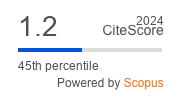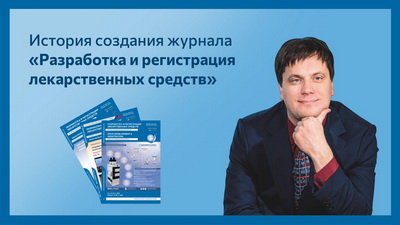Study of Biologically Active Solid-phase Systems Based on Halogen-substituted Nitrobenzofuroxans by the IR Spectroscopy Method
https://doi.org/10.33380/2305-2066-2020-9-4-32-39
Abstract
Introduction. Biologically active compounds 4,6-dinitro-5,7-dichlorobenzofuroxan (4,6-DNDHBFO) and 5-nitro-4,6-dichlorobenzofuroxan (5-NDHBFO) effectively in-hibit ultra-resistant microorganisms: Staphylococcus aureus, pathogenic fungi – Aspergillius niger, Coniophora cerebella, Candida albicanas and other microor-ganisms. Mixed systems based on 4,6-DNDHBFO and 5-NDHBFO exhibit high potentiated synergistic activity against Aspergillius niger. Currently, there are no full-fledged studies about the mechanism of synergism of 5-NDHBFO and 4,6-DNDHBFO in a solidphase system. The results of the study of solid-phase sys-tems 5-NDHBFO – 4,6-DNDHBFO by IR spectroscopy will make it possible to establish the nature of the interaction between the components of the binary mix-ture.
Aim. Experimental study of the intermolecular interaction of 5-NDHBFO with 4,6-DNDHBFO by the IR spectroscopy method.
Materials and methods. The intermolecular interaction of 5-NDHBFO with 4,6-DNDHBFO at different ratios in a solid-phase system was studied by the IR spectroscopy method.
Results and discussion. Based on the results of the study, the physico-chemical interaction of 5-NDHBPO with 4,6-DNDHBFO in solid-phase systems was revealed. Shifts and changes in the intensities of the characteristic frequencies of functional groups involved in the formation of intermolecular bonds between 5-NDHBPO and 4,6-DNDHBPO were revealed.
Conclusion. The nature of the interaction between 4,6-DNDHBFO and 5-NDHBFO in the solid-phase system was established, leading to the appearance of a synergy effect. The interaction of 5-NDHBFO with 4,6-DNDHBFO in a bi-nary system is due to the formation of an intermolecular hydrogen bond. The in-teraction involves the proton of the 5-NDHBFO molecule, the oxygen of the fu-roxan ring of 4,6-DNDHBFO, as well as the halogen atom of 4,6-DNDHBFO at an equimolar ratio of the components of the solid-phase system.
About the Authors
A. N. KhuziakhmetovaRussian Federation
Alsu N. Khuziakhmetova
18, Kremlyovskaya str., Kazan, Republic of Tatarstan, 420008
E. G. Gorelova
Elena G. Gorelova
68, Karl Marx str., Kazan, Republic of Tatarstan, 420015
L. M. Yusupova
Luiza M. Yusupova
68, Karl Marx str., Kazan, Republic of Tatarstan, 420015
A. A. Kurmaeva
Alina A. Kurmaeva
68, Karl Marx str., Kazan, Republic of Tatarstan, 420015
References
1. Zefirov O. N., Zefirov N. S. Medical chemistry (Medicinal Chemistry). Methodological foundations for creating drugs. Vestnik Moskovskogo universiteta. Seriya 2. Himiya = Moscow University Bulletin. Series 2 Chemistry. 200041(2):103–108. (In Russ.).
2. Alekseeva A. A., Torshkhoeva R. M., Vishneva E. A., Levina Yu. G., Volkov K. S. Combined medications in the treatment of the cough in children. Pediatricheskaya Farmakologiya = Pediatric pharmacology. 2011;8(5):98–100 (In Russ.).
3. Novikov V. E., Ilukhin S. A. Influence of hypoxen on acetylsalicylic acid efficiency in acute inflammation. Experimental and Clinical Pharmacology = Experimental and Clinical Pharmacology. 2013;76(4):32– 35 (In Russ.).
4. Pozhilova E. V., Novikov V. E., Novikova A. V. Pharmacodynamics and clinical applications of preparations based on hydroxypyridine. Vestnik Smolenskoy Gosudarstvennoy Medicinskoy Akademii = Vestnik of the Smolensk State Medical Academy. 2013;12(3):56–66 (In Russ.).
5. Bryndal I., Ledoux-Rak I., Lis T. Search for molecular crystals with NLO properties: 5-Sulfosalicylic acid with nicotinamide and isonicotinamide. J. Mol. Struct. 2014;1068(1):77–83.
6. Vagner Kh., Ulrikh-Merzenikh G. Synergy research: creating a new generation of phytopreparations. Russkij medicinskij zhurnal. Medicinskoe obozrenie. 2016;3:183–189 (In Russ.).
7. Magerramov A. M., Makhmudov K. T., Kopylovich M. N., Pombeiro A. J. L. Non-covalent interactions in the design and synthesis of new compounds. Moskow: Tekhnosfera, 2016. 624 p. (In Russ.).
8. Fadeev Yu. A, Saltanova E. V. Study of the intermolecular interaction of polar molecules in solid solutions with a disordered microstructure. Polzunovsky vestnik. 2006;2:49-52 (In Russ.).
9. Yusupova L. M., Garmonov S. Yu., Zakharov I. M., Zykova I. E., Mukhametshina A. M., Falyakhov I. F., Garipov T. V. Biological activity of chlorine derivatives of nitrobenzofuroxan. Voprosy biologii, mediciny, farmacevticheskoj nauki = Problems of Biological, Medical and Pharmaceutical Chemistry. 2005;4:45–48 (In Russ.).
10. Buzykin V. I., Garipov T. V., Garipova K. T., Davletshin A. N., Korolev B. A., Molodykh Zh. V., Falyakhov I. F., Yusupova L. M. Acaricidal compound for treating scabies in pets. Patent of the Russian Federation № 20678963. Declared 25.05.1994. Publ. 20.10.1996 (In Russ.).
11. Yusupova L. M., Garmonov S. Yu., Zakharov I. M. et al. Fungicidal and toxicological properties of functionally substituted nitrobenzofuroxans. Himiko-farmacevticheskij zhurnal = Pharmaceutical Chemistry Journal. 2008;42(4):27–28. (In Russ.).
12. Yusupova L. M., Garmonov S. Yu., Zakharov I. M., Bykov A. R., Garipov T. V., Falyakhov I. F. Multipurpose biological protection agents based on chlorine derivatives of nitrobenzofuroxan. Vestnik Kazanskogo tekhnologicheskogo universiteta = Bulletin of the Technological University. 2004;1:103–111. (In Russ.).
13. Buzykin V. I., Gubaidullin A. T., Litvinov I. A., Yusupova L. M. Molecular and crystal structure of 4,6-dichloro-5-nitrobenz-2,1,3-oxodiazole1-oxide. Butlerovskie soobshcheniya = Butlerov Communications. 2005;6(2):29–32. (In Russ.).
14. Yusupova L. M., Buzykin B. I., Molodykh Zh. V., Falyakhov I. F., Abdrakhmanov I. Sh., Khisamutdinov G. Kh., Belyaev P. G., Ugryumova V. S., Ravilov A. Z., Yusupova G. R., Sharnin G. P., Bulidorov V. V., Sviridov S. I., Anisimova N. N. Method of obtaining a mixture of 4-nitro-and 6-nitro-5,7-dichlorobenzofuroxanes and a mixture of 4-nitro- and 6-nitro-5,7-dichlorobenzofuroxans having bactericidal, virucidal and sporocidal activity. Patent of the Russian Federation № 2051913. Declared 22.04.1992. Publ. 10.01.1996. (In Russ.).
15. Khmelnicki L. I., Novikov S. S., Godovikova T. I. Chemistry of Furoxans: Structure and Synthesis. Moskow: Nauka, 1996. 383 p. (In Russ.).
16. Tarasevich B. N. IR spectra of the main classes of organic compounds. Moskow: Moscow State University, 2012. 54 p. (In Russ.).
Review
For citations:
Khuziakhmetova A.N., Gorelova E.G., Yusupova L.M., Kurmaeva A.A. Study of Biologically Active Solid-phase Systems Based on Halogen-substituted Nitrobenzofuroxans by the IR Spectroscopy Method. Drug development & registration. 2020;9(4):32-39. (In Russ.) https://doi.org/10.33380/2305-2066-2020-9-4-32-39









































